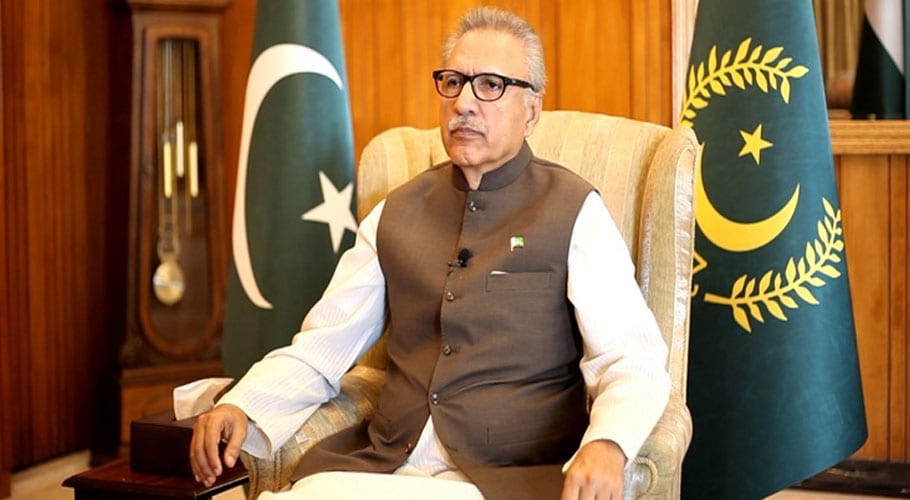ISLAMABAD: President Dr Arif Alvi has signed an ordinance, approving an amendment to the Election Act, 2017 for holding the upcoming Senate polls through an open ballot.
According to details, the development comes after the federal cabinet approved a summary to amend the election act through the presidential ordinance.
The approval was taken from the cabinet through a circulation summary because there is not much time left for the electoral reforms as the Election Commission of Pakistan (ECP) announced to issue the schedule for the Senate elections on February 11.
The Elections (Amendment) Ordinance 202, shared by Information Minister Shibli Faraz on Twitter, stated that the Senate and National Assembly are not in session and the President is satisfied that circumstances exist which render the ordinance necessary to take immediate action.
Elections(Amendment) ordinance 2021 pic.twitter.com/APKvBoiivz
— Senator Shibli Faraz (@shiblifaraz) February 6, 2021
According to the document, the ordinance shall come into effect at once and extend to the whole of Pakistan. In the Elections Act, 2017 (XXXIII of 2017) in section 81, in sub-section (1), for the word and the expression subject to section 122, and shall be substituted.
“In the said Act, in section 122, in sub-section (6), for the full stop at the end. a colon shall be substituted and thereafter.
According to the Act, “Provided that in case the Supreme Court of Pakistan gives an opinion in Reference No 1 of 2021 filed under Article 186 of the Constitution that elections for the members of Senate do not fall within the purview of Article 226 of the Constitution.”
The vote for elections for members of the Senate to be held in March 2021 and thereafter shall be conducted by the Commission through an open and identifiable ballot.
“Provided further that after the elections for members of Senate, if the head of the political party requests the Commission to show the ballot cast by any voting member of his party the Commission shall show the same to the head of the political party or his nominee,” read the ordinance. In the said Act, in section 185, for the word “an”, the expression “subject to section 122, a” shall be substituted, the ordinance added.
The move is part of a larger set of electoral reforms that were tabled in parliament to legislate on the matter to ensure transparency in the electoral process; however, the efforts went unsuccessful earlier due to a protest in the Assembly by the opposition.
After an abortive effort to get the bill approved by the National Assembly, the federal government decided to implement its decision by introducing the presidential ordinance.
The federal government has also sought the Supreme Court’s opinion on whether the Senate elections could be held through open ballot by amending the Election Act 2017 that requires simple legislation.
On January 2, Chief Justice of Pakistan (CJP) Justice Gulzar Ahmed had warned that the Supreme Court will give its opinion if the government does not withdraw the presidential reference regarding open ballot voting in Senate polls.
The SC bench, headed by CJP Gulzar Ahmed, heard the case while the Attorney General of Pakistan (AGP) Khalid Jawed Khan was present on the government’s behalf.
“The court has to give its opinion on whether the constitution needs to be amended or not to change the secret balloting method,” he said. He also asked, “What is so important about open and secret balloting and why are others not agreeing?”
Responding to the question, the attorney general said, “Such an act would come under corrupt practice and a member of the assembly is disqualified under the law for corrupt practices.”
Meanwhile, according to sources, the Opposition parties have decided to oppose the constitutional amendment being introduced soon. The leaders of PPP, PML-N and JUI-F discussed the matter after the government announced to introduce a bill in this regard.
Earlier, Prime Minister Imran Khan had vowed to hold elections for the upper house of parliament through a show of hands, and not by secret ballot, to ensure transparency and eliminate vote trading.
At present, the opposition is in majority in the Senate and, therefore, many times legislation passed by the National Assembly was bulldozed by in the upper house in the recent past.



































